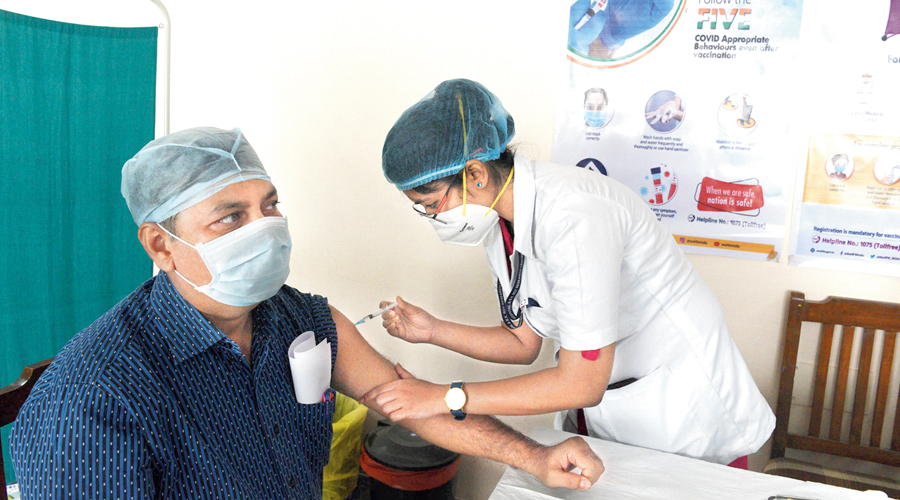The criteria to determine who below 50 years would be eligible for Covid-19 vaccines first will prioritise those with advanced or combinations of chronic health disorders over those with disorders under control, according to doctors familiar with the norms.
A panel of experts drawn from multiple specialities has submitted its report to the National Expert Group on Vaccine Administration (NEGVAC) suggesting criteria for disorders involving the brain, endocrine system, heart, lungs, liver, kidneys and other organs, the doctors said.
“The carefully calibrated criteria prioritise those expected to be at the highest risk of severe coronavirus disease,” said a senior doctor who was not authorised to reveal the details.
People below 50 with combinations of disorders such as both kidney disease and heart failure, or those with both hypertension and diabetes or a history of stroke, would be prioritised over those with health disorders under control, the doctor said.
Patients with coronary heart disease, those who have already had coronary stents or undergone coronary bypass surgeries, or those who have had strokes are obvious candidates for the vaccines, another doctor associated with the exercise said.
“There will be no screening for this; people might use their existing clinical records,” the doctor said.
The eligibility criteria are expected to include certain quantitative measures, such as specific thresholds for hypertension and blood sugar and other blood biochemistry markers for kidney or liver disease.
“One obvious high-risk category would be all the people on dialysis,” said Vivekanand Jha, a nephrologist and executive director at The George Institute for Global Health, New Delhi, who is not a member of the expert panel.
Among an estimated 200,000 people on dialysis across the country, he said, around 40 per cent would be under 50. “People undergoing dialysis have low immunity and need to be prioritised for the Covid-19 vaccines,” Jha said.
The Union health ministry, relying on recommendations from the expert panel and the NEGVAC, is expected to make public within days to weeks the eligibility criteria for people below 50 and the process through which those eligible can register for vaccines.
India’s vaccination campaign is seeking to immunise nearly 30 million healthcare and frontline workers, to be followed by a second phase to vaccinate around 270 million people who are either aged above 50 or have chronic health disorders.
The campaign had till Friday vaccinated over 5.8 million healthcare workers and 1.9 million frontline workers.
The expert panel includes specialists in cancer, cardiovascular disorders, kidney disease, respiratory medicine and other chronic health conditions.
Sources said the criteria in India for people with cardiovascular diseases (CVD) would be “broadly similar” to what the American College of Cardiology has proposed in the US — the prioritisation of all patients with advanced CVD over those with well-controlled CVD.
The ACC has recommended, for instance, that patients with poorly controlled hypertension, insulin-dependent diabetes or diabetes with vascular (blood vessel) complications should be considered at higher risk than patients with optimal medical parameters.











